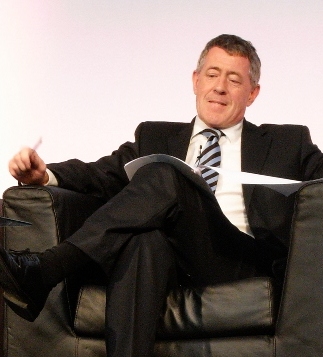A curious tale of cost-cutting has emerged in the last few
days as it seems Westminster City Council is planning to scrap its network of more
than 100 CCTV cameras in the West End of London on the basis that it can no
longer afford their upkeep due to government cuts.
This will come as a surprise to those who remember times at
City Hall under the then unknighted Simon Milton when, along with Wandsworth,
it prized itself as a wealthy (ahem, their reserves have recently been valued
at over £22billion so they'll get through the week), successful council; a proud Conservative flag-bearer in
a time when Labour ruled the roost nationally with ease. I remember, back in
2004, Kit Malthouse, now an MP but then a Westminster councillor and deputy
leader, confidently revealing ambitions to cut council tax from its already low
levels to zero ‘by 2012’. Needless to say this courageous aspiration was never realised.
And, when I worked as a reporter in the area in the earlier
2000s, Westminster Council was inordinately proud of the network. The
manager of the CCTV control room was not only keen on inviting the press and other visitors to
see how the operation worked, but he was also a frequent witness at council
meetings and attended gatherings of organisations like the Leicester Square
Association, reminding the locals how useful the CCTV was in improving their security.
But now, while other police and private cameras will remain,
Westminster wants to switch theirs off, claiming it will save a £1million a year,
a fairly paltry sum when they are looking for savings of more than £100million.
A report on the matter concludes it is not the ‘most effective use’ of council
money and the ‘operational benefit to the council is limited’; working hand in
hand with the police, it seems, is so last decade.
A Soho resident I know wondered whether their safety was
being put at risk by these cuts. After all, for years Westminster Council, the
police and the government have been telling anyone who’d listen that the
network was a success, acclaimed for cutting crime in the West End. Have they,
in fact, all be telling porkies?
 |
| John Denham |
In 2002, the Press Association reported how Home Office
minister John Denham, was treated to a private viewing of footage - in the ‘£1.2million CCTV control
room in the Trocadero Centre’ - of an incident in which eight youths launched an
unprovoked attack on two men in Leicester Square. Other treats included a fist
fight and a man urinating into a bin in Soho. Denham announced an extra
£169,000 grant for three new cameras to the system and claimed that, while the
CCTV centre had only been in operation for four months, 'it was already
producing real results’. Deputy Assistant Commissioner Andy Trotter said ‘CCTV
had been a great help in tackling late night incidents’.
In April 2003, Deputy Commissioner Ian Blair praised CCTV
for helping to cut street crime in Westminster by 33 per cent
And in January, 2001, Westminster councillor Alan Bradley,
who was then cabinet member for community protection at the council, wrote a
letter to the council taking issue with a claim that CCTV does ‘not appear to
make such difference anyway’. Councillor Bradley wrote: ‘We cannot quantify
exactly how much difference it makes but we have seen a drop in street crime of
30 per cent in the West End in the past year. CCTV is one tool to help in the
battle against crime and antisocial behaviour…. In Leicester Square for
example, our CCTV was instrumental in the successful prosecution of seven
youths who assaulted a tourist… the only comment I hear from people in Westminster
about CCTV is to press for it to be extended to the streets where they work and
live.’
In July 2004, Sound, the nightclub in Leicester Square, lost
its licence after attacks on customers by bouncers were captured on CCTV.
Superintendent Chris Bradford, from the Metropolitan Police’s clubs and vice
unit, said: ‘The video footage showing the kickings given to customers were
horrific.’
In April 2007, a man dubbed ‘Britain’s most prolific handbag
thief’ was jailed for four years. Maurice Young, then 55, ‘was captured on CCTV
at the scenes of the crimes’.
In September of the same year, the numbers of traffic
wardens were cut in the West End by 20 per cent, with the council boasting that an
expanded CCTV network could do the job more efficiently and save £1million a
year.
Before the Olympics, in May 2012, the Evening Standard
reported that police ‘swooped on Soho’s most wanted drug dealers in a
pre-Olympics blitz on the street trade in heroin and crack cocaine’. Police
identified a ‘hit list of 36 top-level suspects – amassing CCTV evidence and
conducting test purchases’.
 |
| Camille Gordon |